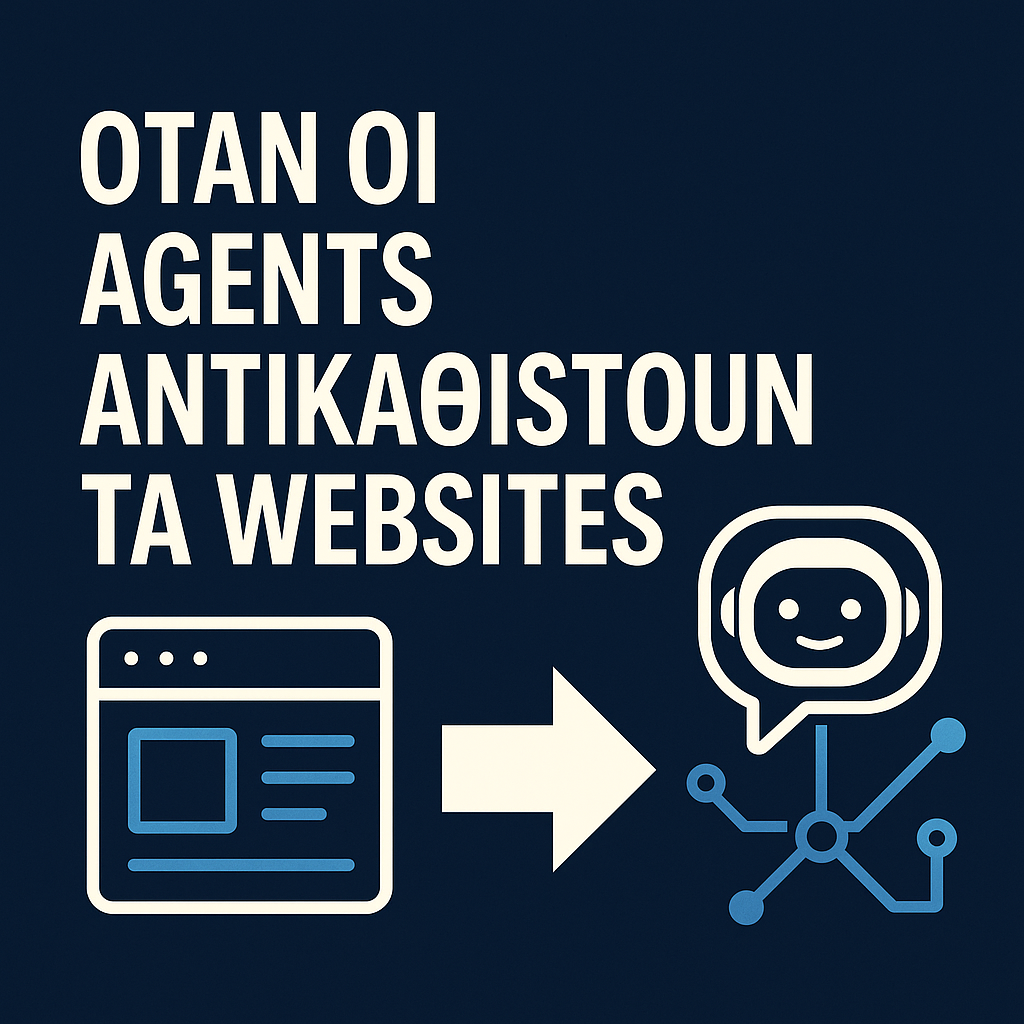
Websites, as we know them today, are gradually losing their central value. They are not disappearing, but are becoming more like “infrastructures” that feed data and information, while agents (intelligent systems that automatically complete tasks) are taking on the role of gateways to the end user.
The future is agentic
Agents that complete tasks are no longer just an idea—they are already being adopted. This means that discovery and online transactions are shifting from classic search and browsing on websites to a more direct process: the user states their intention (“find me a flight,” “book a table”) and the system takes care of it.
The data confirms this. The global market for AI agents was valued at $5.4 billion in 2024 and is projected to exceed $50 billion by 2030, with an annual growth rate of nearly 46%. In Europe, the market is expected to grow tenfold over the next six years, while in China we are already seeing the dominance of platforms such as WeChat, where “mini-programs” have largely replaced the need for separate websites.
From search to answers
For decades, websites have been the “shop window” of every business. The domain name was the identity, the Google ranking determined credibility, while UX and design directly influenced the user experience. But with agents, the journey is changing:
You don’t need Expedia or Aegean.com to book a flight if the agent does it for you.
You don’t need to open OpenTable to make a restaurant reservation.
You don’t need to search the Nike website if the shoes are delivered straight to your door.
The result is the same: the source remains invisible, as long as the user gets the right answer.
The West follows suit
Similar practices are already appearing on platforms such as Instagram Checkout and TikTok Shop, where purchases are completed without leaving the app. Gradually, the “journey” of discovery → click → website → purchase is being replaced by an agentic cycle that begins and ends within the same platform.
The risk for brands
The big challenge is the loss of a direct relationship with the customer. When the booking, purchase, or appointment is made by the agent, the user’s loyalty may belong to the agent and not the business. This means that companies need to invest in trust signals, structured data, and unique content that will be recognized by systems and set them apart.
SEO and data: more important than ever
SEO isn’t going away—it’s evolving. Instead of just targeting SERPs, we need to ensure that our data is structured, accurate, and easily retrievable by agents. Metrics are also changing: from clicks and sessions, we are moving to new KPIs, such as whether content was retrieved or used within agentic flows.
What this means for businesses
Websites will continue to exist, but more as technical infrastructure rather than the primary point of interaction with customers. Design may lose ground, but content, data, and credibility remain key.
So the question is not whether we will continue to have websites—we will. The real question is: are you still investing only in the storefront, or are you also taking care of the “pipelines” that feed your agents with your data?











